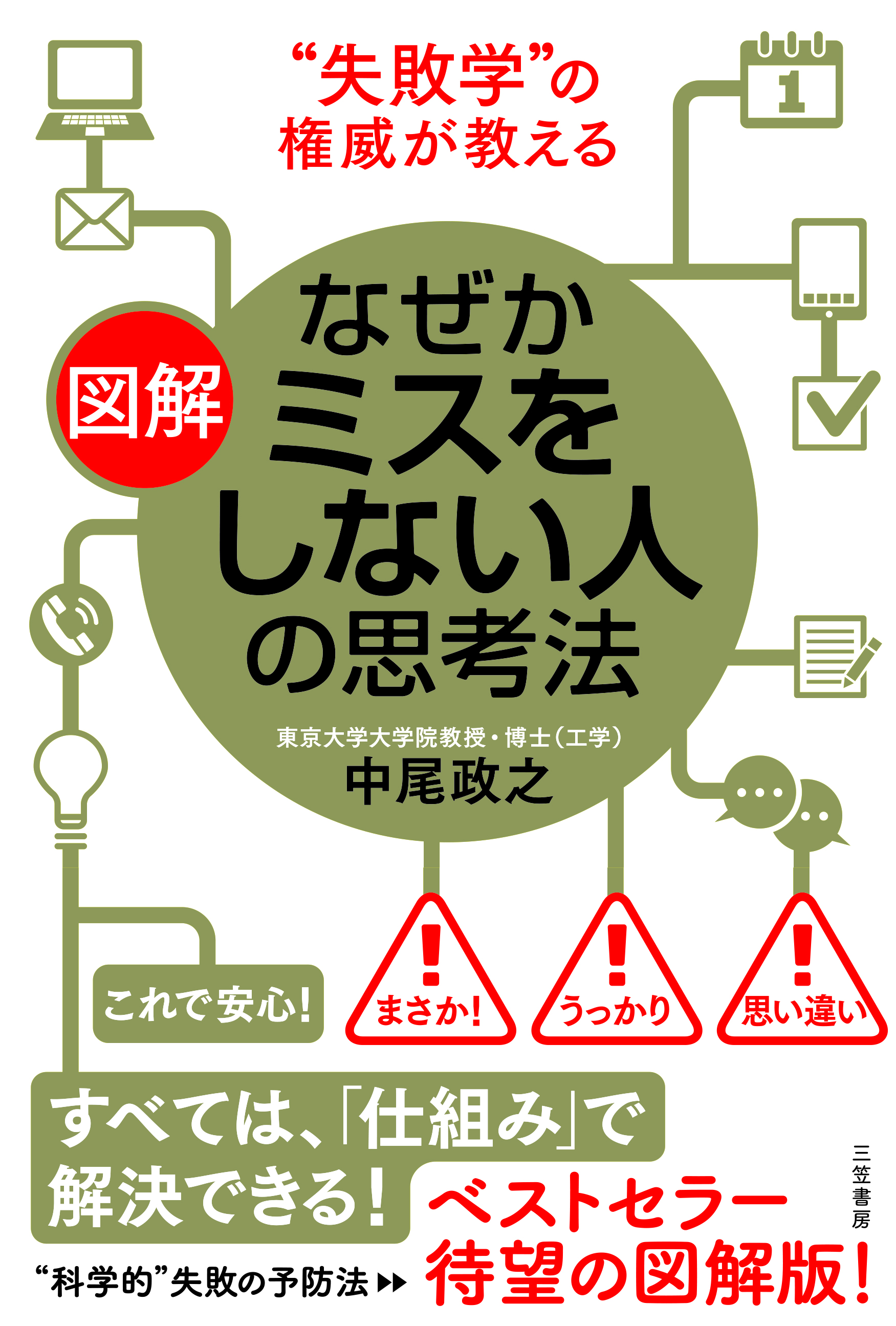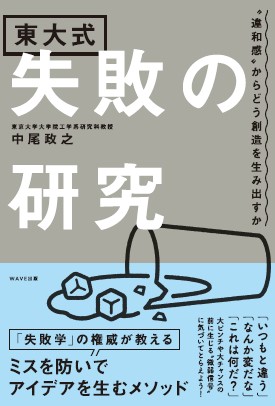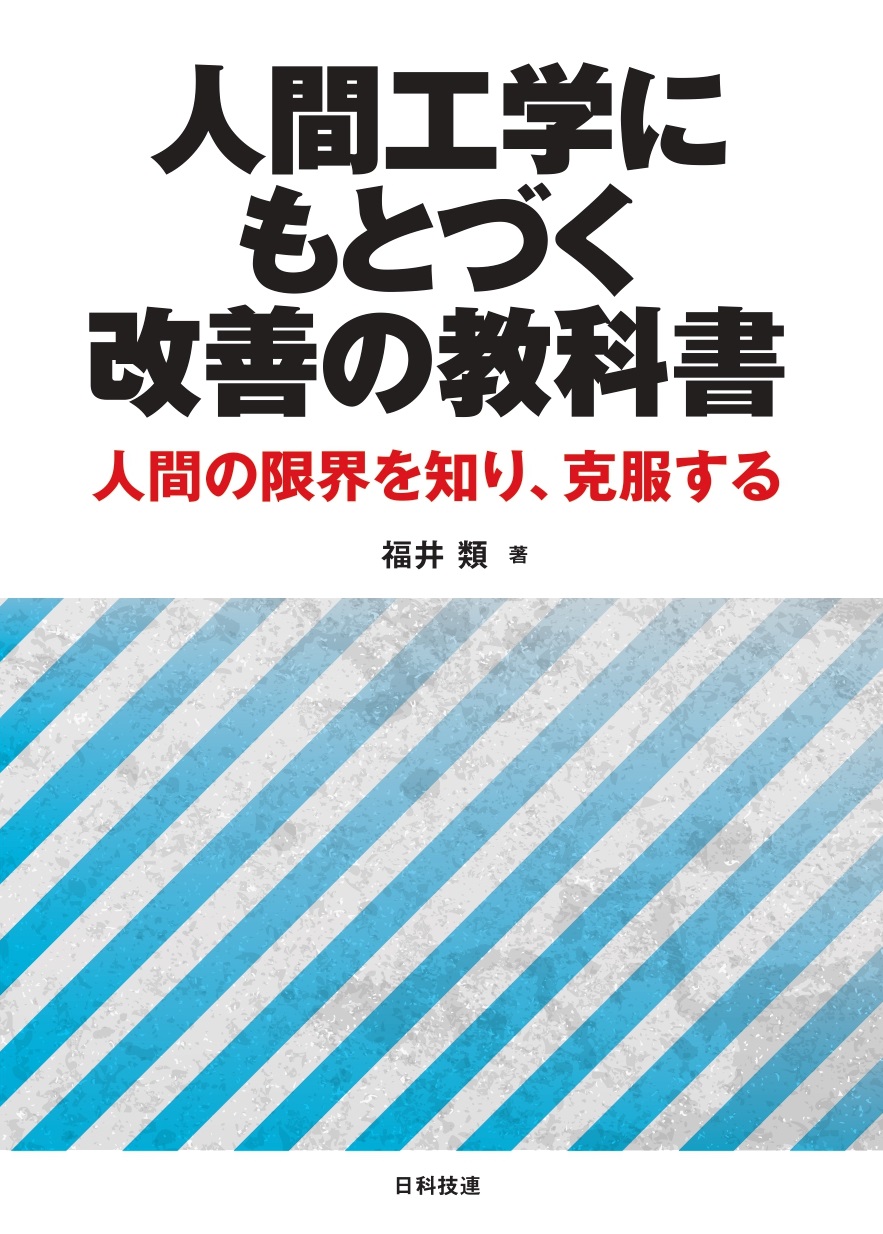
Title
Visually Illustrated: Nazeka Misu wo Shinai Hito no Shiko-ho (How to Think Like Someone Who Does Not Make Mistakes - The power taught by the science of “Failure Analysis”)
Size
213 pages
Language
Japanese
Released
January 18, 2018
ISBN
9784837927129
Published by
Mikasa Shobo
Book Info
See Book Availability at Library
Japanese Page
There is a principle that errors and failures will always be made under certain conditions. In this book, examples of failures of businesspeople, employees, and managers, together with examples of how they succeeded in reversing their mistakes, are introduced and classified into 20 principles. These, for example, include the principle of lessons, “Failure of others is the best textbook” and “The more reluctant the report, the more important it is”; the principle of negligence, “Move cautiously particularly when everything seems okay” and “How to drive out the three evils of failure: ignorance, neglect, and overconfidence”; and the principle of concealment, “If you hide a failure, it will return on you tenfold” and “Is the offender who caused the error guilty of a lack of caution, misjudgment, or bad planning?” Each of these are phrases that presidents are likely to say when board meetings are disrupted by the response to a failure. In the end, however, the best code of conduct for leaders is “Do not be proud, do not hide, correct yourself.” When we boast that “our morals are so strong that there is no issue,” we contrive to overlook the buds of failure. To continue to succeed is the worst. Being enthusiastic and confident, the organization sticks to its old teachings and becomes stale, and therefore becomes insensitive to risk. Moreover, should this grow and become tangible, this will lead to cover-ups: “How can we conceal this so that the world does not find out?” Even if this is good in the short term, such wrongful acts invariably come to light in time. This can cause catastrophic and ruinous losses tens to hundreds of times greater than if we apologize honestly at the outset. Ultimately, when we laugh at others’ mistakes and say, “They had it coming,” subordinates will also relax, but this will bring the same failures upon us. As long as we are in business, failure is unavoidable. Rather, even if we fail, we must analyze the situation honestly to avoid being shaken by that failure and falling into meaningless idealism. People who can make the vital move to change the system before further failure, without resorting to trickery, will ultimately emerge as winners.
(Written by NAKAO Masayuki, Professor, School of Engineering / 2019)



 Find a book
Find a book




